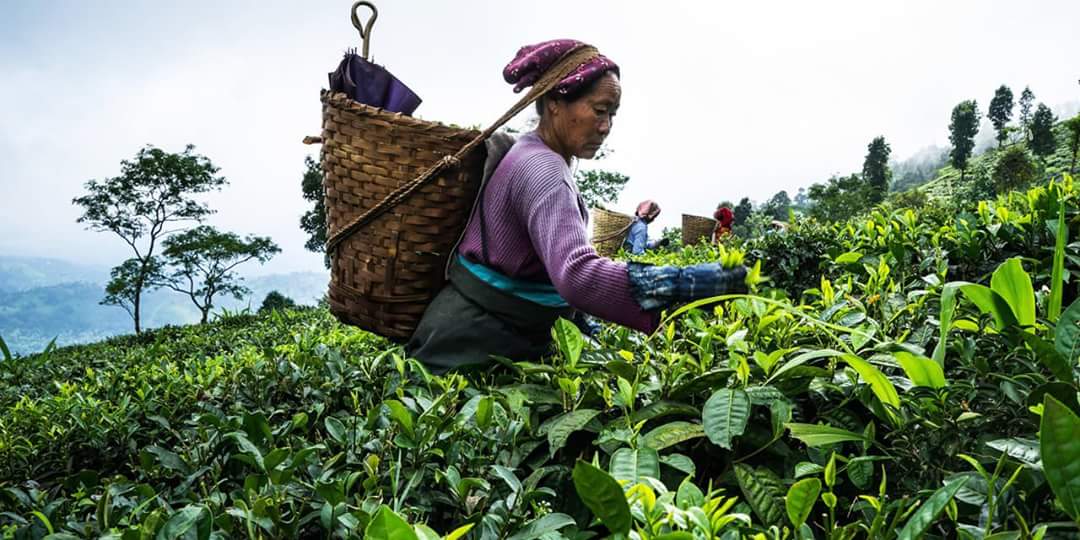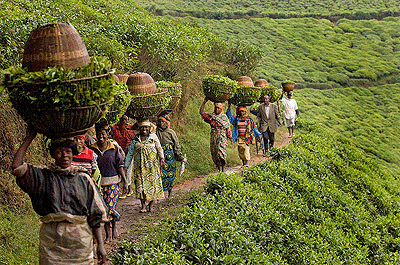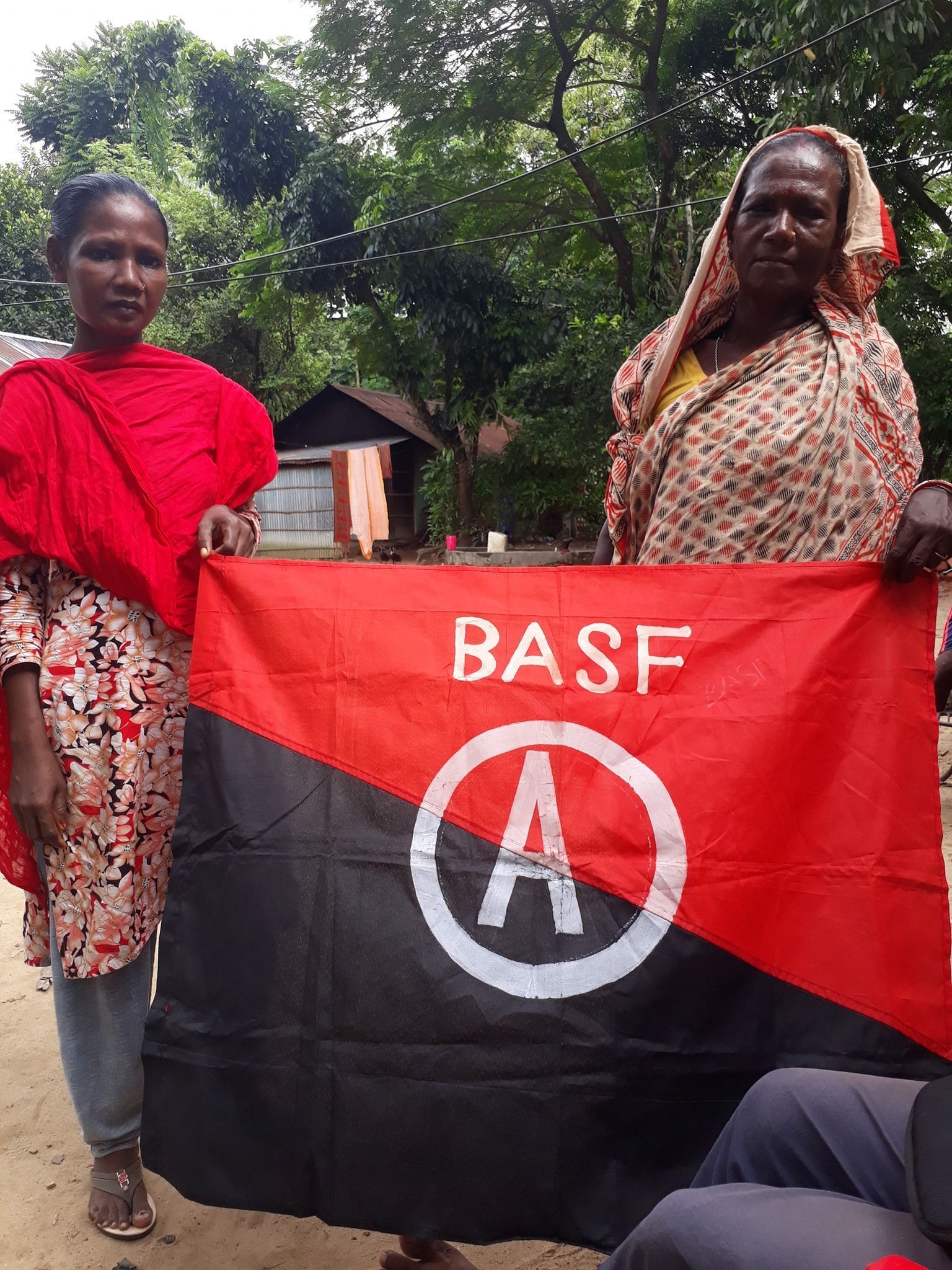The production of tea in Bangladesh began during the colonial period, in the 19th century. The first plantation was established in Malnicherra (Sylhet division) in 1854. Since then, the same feudal conditions have been imposed on tea pickers. Tea pickers are almost exclusively women who are employed for this grueling work, standing all day in sometimes suffocating conditions.

There are 167 tea plantations in Bangladesh, to which are added around 800 small farms. More than three quarters of tea production is carried out in the Sylhet division, in the north-east of the country, notably in Maulvibazar and Habiganj which benefits from a humid climate and slightly steep terrain.
While Bangladesh uses to be an exporting country until the years 1990, today tea production is not sufficient to cover local consumption, particularly due to the low productivity of aging plantations that are poorly maintained by the ownerso tea plantation.

Women tea pickers are arguably the most exploited and poorest of all working people in Bangladesh, earning the lowest wages of Bangladesh's 43 industrial sectors, according to Rajat Biswas, general secretary of the Maulvibazarregion of the Shangha union (BUTS).
In 2010, the government set the minimum daily wage at 45 Taka, or 44 euro cents per day! This had triggered an immediate strike and the minimum wage had been doubled to 99 Taka (0.98 euros / day). To avoid new uncontrolled strikes, the government and plantation owners then had the idea of creating a Joint Committee gathering together Workers and employers, named the Wage Board, and intended to promote social dialogue between representatives of employers and workers : Garden workers and owners sit every two years to agree on wages.
The Wage Board is appointed for 5 years, its members are appointed by the Government which chooses them from among the employers' and trade union organizations that are officially recognized as representative. It must propose a review of minimum wages every two years, and must send its recommendations to the government within 6 months after deliberation.
After many years of procrastination, the government ended up appointing the tea Industry Wage board in January 2019. The latter then set for the next two years the minimum wage between 116 and 120 Taka per day (between (€ 1.15 and € 1.19 per day.) Yet unions estimate that to live decently, this salary should be at least 300 Taka (2.97 euros) plus free accommodation and holiday leave equivalent to two months' salary.
As this recommendation expires in December 2020, the Wage board should have met in 2020 to set the new minimum wage. But the bosses took the excuse of the Corona for repeatedly postponing the Commission meeting. Finally, the Commission announced on June 13, 2021, 6 months late, that the minimum wage remained unchanged.
The Wage board also proposed to create an "apprentice" category with 110 taka as the daily pay, which is mainly a way of paying less for adolescents and young adults who work alongside their mothers during the picking season.
The Wage board rejected the principle of an automatic 5% annual increase - yet recommended by the government’s Minimum Wage Office! - denounced Gita Rani Kanu, president of the Forum of Women Tea Workers of Bangladesh.On the other hand, the Wage board recommended the interim sittings be held every three years instead of every 2 years!
Finally, if the Wage board recommended that employers setup one tube well or well for every 20 workers' families, it did not specify how employers should ensure that the water was drinkable, even though it is compulsory according to the Bangladesh Labor Act, 2006.
The Wage Board 's refusal to raise wages has sparked anger among workers. As RajdeoKairi, Cha Sramik (tea workers) of the Sangha union, says: “167 years have passed since the tea industry started in Bangladesh, but our daily wage is not even 167 Taka! " BASF, the AIT section in Bangladesh and particularly active in the Sylhet region, and the Bangladesh Tea Workers Union (BTWU) have demanded the cancellation of the draft minimum wage recommendation. They maintain the demand for a minimum of 300 daily Taka, as well as free housing and health care and two months of bonuses. Mobilizations are underway to denounce this agreement of shame.

This example shows once again that joint committees like the Wage Board, which bring together employers and workers to supposedly promote social dialogue, are useless for workers: joint committees are only useful for employers and for parasitic union bureaucrats. If workers want to achieve justice, they shall stop trusting official unions and joint committees and they can only rely on their own strength. It is only by consolidating their strength in the balance of power against the boss- and in particular using direct action strategy like the strike - that will enable workers to obtain their just demands.


